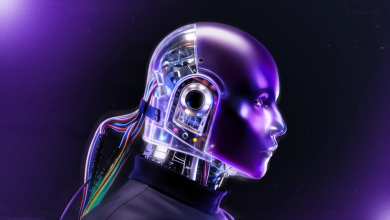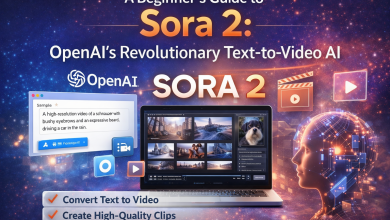Reimagining the Future with AI-Driven Business Ecosystems
The evolution of business technology is no longer just about automating processes; it’s about creating intelligent, adaptive ecosystems that proactively shape market dynamics. At the heart of this transformation is artificial intelligence, which is rapidly reshaping how enterprises operate, compete, and innovate. This new paradigm leverages vast data sets, machine learning algorithms, and real-time analytics to develop predictive models that offer strategic foresight. Businesses today are no longer passive responders but active anticipators—using AI to forecast disruptions, optimize supply chains, and personalize customer experiences at unprecedented levels.
The ability to harness AI within these ecosystems enables organizations to transition from reactive management to proactive decision-making—embodying a true business technology revolution. This shift underscores a new era where enterprises evolve into self- learning entities, capable of adapting swiftly to emerging opportunities and threats.
Building the Foundation of Predictive Enterprise
The core of this transformation lies in integrating predictive analytics with AI. Enterprises generate immense data streams from various sources—IoT devices, transaction records, social media, and more—creating a “big data” environment. Yet, raw data is only valuable when processed effectively. AI plays a crucial role in deriving actionable insights and forecasting future trends.
Predictive models enable businesses to accurately predict customer behaviors, market fluctuations, and operational risks. For example, in retail, AI algorithms analyze purchasing patterns to optimize inventory, while in finance, they forecast market trends to inform investment strategies. These capabilities are essential for creating resilient, efficient, and competitive operations that anticipate rather than merely react to change.
The Human-AI Symbiosis
In this new era, human ingenuity and machine intelligence are symbiotic. AI amplifies human decision-making by providing nuanced insights, not replacing strategic thinking. For instance, healthcare providers use predictive AI systems to identify at-risk patients, but clinicians’ judgment determines personalized treatment plans.
This human-AI collaboration enhances organizational agility, enabling decision-makers to confidently operate in complex environments. It also fosters a continuous learning and
innovation culture—integral to maintaining a competitive edge in rapidly shifting markets. By embedding AI into daily business practices, companies evolve into adaptive entities capable of thriving amid uncertainty.
Resilience and Transformation through AI Ecosystems
The integration of AI fosters organizational resilience by enabling proactive responses to potential disruptions. Energy companies, for example, leverage predictive analytics to forecast demand patterns and optimize load balancing, reducing downtime and emissions. Similarly, manufacturing firms use machine learning to predict equipment failures, minimize costly downtimes, and improve maintenance schedules.
These intelligent systems allow enterprises to reconfigure operations dynamically, ensuring stability and resilience in volatile environments. This proactive resilience is crucial in sectors heavily impacted by external shocks—supply chain interruptions, geopolitical shifts, or environmental factors—making AI a productivity booster and a strategic necessity.
Navigating Ethical and Governance Challenges
As AI becomes intertwined with core business processes, ethical considerations grow in importance. Transparency, fairness, and accountability must guide AI deployment to build stakeholder trust and comply with evolving regulations. Organizations must develop governance frameworks addressing bias, data privacy, and decision transparency.
Responsible AI practices reinforce that technology should serve humanity’s best interests, ensuring implementations are ethical, inclusive, and sustainable. This responsible approach is vital for long-term success and fostering a positive brand reputation in an era of heightened scrutiny.
The Path to Innovation
The future belongs to enterprises that seamlessly embed AI into their ecosystems— transforming traditional business models into intelligent, self-optimizing entities. By harnessing AI strategically and ethically, organizations can unlock new revenue streams, improve operational efficiency, and deliver highly personalized experiences.
This transformative journey demands a shift in mindset—viewing AI as an enabler of innovation rather than purely a cost-saving tool. As business ecosystems evolve, those who champion AI-powered agility will shape tomorrow’s markets, leading with foresight and technological mastery.



